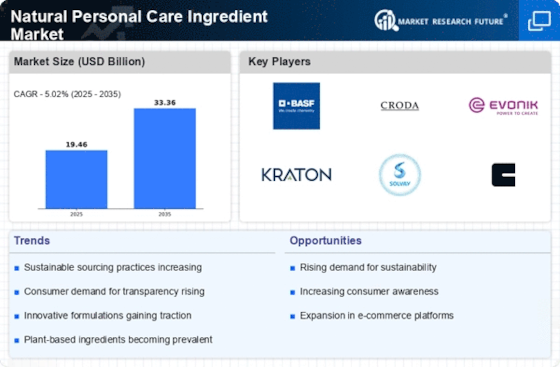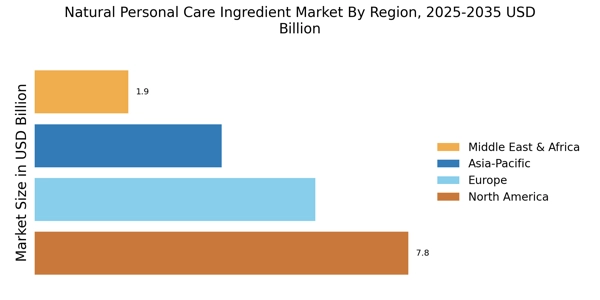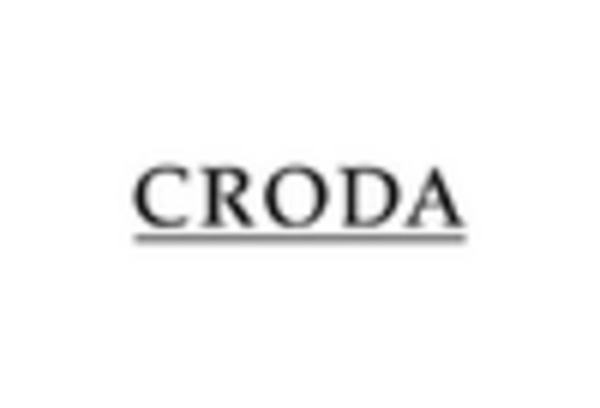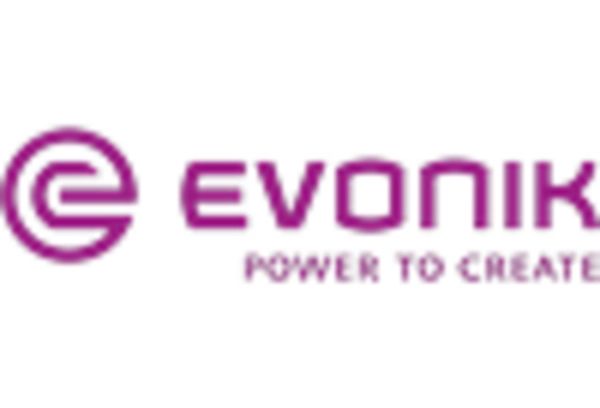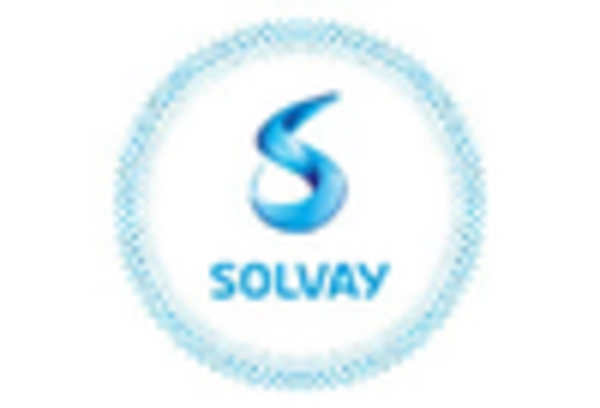Innovation in Natural Ingredients
Innovation plays a crucial role in the Natural Personal Care Ingredient Market, as companies strive to develop new and effective natural ingredients. The emergence of novel botanical extracts and biotechnological advancements has led to the creation of multifunctional ingredients that cater to diverse consumer needs. For instance, ingredients derived from algae and other marine sources are gaining traction due to their unique properties and sustainability. The market for natural ingredients is projected to grow at a compound annual growth rate of 8% over the next five years, reflecting the increasing investment in research and development. This innovation not only enhances product efficacy but also aligns with the growing consumer demand for sustainable and effective personal care solutions.
Growing Interest in Holistic Wellness
The Natural Personal Care Ingredient Market is witnessing a growing interest in holistic wellness, as consumers increasingly prioritize their overall well-being. This trend encompasses not only physical health but also mental and emotional wellness, leading to a demand for personal care products that promote a sense of balance and harmony. Ingredients that are perceived to have therapeutic benefits, such as essential oils and herbal extracts, are gaining popularity among consumers seeking natural solutions for stress relief and self-care. Market Research Future suggests that the wellness segment of the personal care industry is expected to grow significantly, with consumers willing to invest in products that align with their holistic health goals. This shift towards holistic wellness is likely to drive innovation and product development within the Natural Personal Care Ingredient Market.
Consumer Demand for Clean Label Products
The Natural Personal Care Ingredient Market is experiencing a notable shift as consumers increasingly seek clean label products. This trend is driven by a growing awareness of the ingredients used in personal care items, with consumers favoring products that are free from synthetic chemicals and harmful additives. According to recent surveys, approximately 70% of consumers express a preference for natural ingredients, indicating a significant market opportunity for brands that prioritize transparency and ingredient integrity. As a result, companies are reformulating their products to align with these consumer preferences, thereby enhancing their market position. This demand for clean label products is likely to continue shaping the Natural Personal Care Ingredient Market, as consumers become more educated and discerning about their personal care choices.
Rise of E-commerce and Digital Marketing
The rise of e-commerce and digital marketing is transforming the Natural Personal Care Ingredient Market by providing brands with new avenues to reach consumers. Online platforms enable companies to showcase their natural ingredient offerings and educate consumers about the benefits of these products. Recent data indicates that online sales of personal care products have surged, with e-commerce accounting for over 25% of total sales in the industry. This shift towards online shopping is particularly pronounced among younger consumers, who are more inclined to research products and make informed purchasing decisions. As a result, brands that effectively leverage digital marketing strategies are likely to enhance their visibility and market share within the Natural Personal Care Ingredient Market.
Regulatory Support for Natural Ingredients
The Natural Personal Care Ingredient Market benefits from an evolving regulatory landscape that increasingly supports the use of natural ingredients. Governments and regulatory bodies are recognizing the importance of consumer safety and environmental sustainability, leading to the establishment of guidelines that promote the use of natural and organic ingredients in personal care products. This regulatory support is likely to encourage manufacturers to adopt natural formulations, thereby expanding the market. Furthermore, as regulations become more stringent regarding synthetic chemicals, companies that prioritize natural ingredients may gain a competitive advantage. This shift in regulatory focus is expected to drive growth in the Natural Personal Care Ingredient Market, as brands align their product offerings with these emerging standards.


